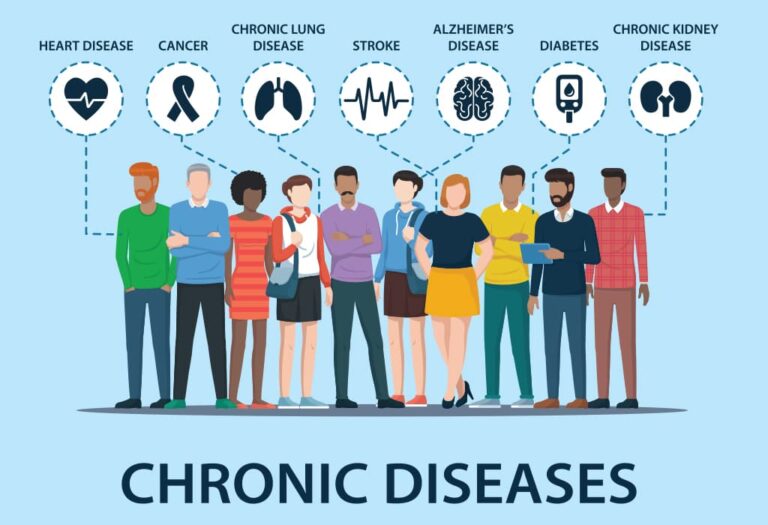Fulminant Hepatitis
Author: Recyll Oraiz
Recyll Oraiz
Category: Health
What is Fulminant Hepatitis?
Fulminant hepatitis is a condition in which your liver begins to fail very quickly. Usually within days or weeks, depending on the cause of the infection. This type of sudden liver failure can occur in people who have previously had stable liver disease or in people who have never had liver issues.
If you or someone close to you exhibits any of these symptoms. seek medical attention immediately.
Hepatitis B virus is sometimes the cause of fulminant hepatitis. Fulminant hepatitis caused by the hepatitis A virus is extremely rare. But it may be more common in people who already have liver problems. Fulminant hepatitis is a rare but serious complication of the hepatitis E virus infection. The role of the hepatitis C virus is still up in the air.
However, most patients with fulminant liver failure have a long history of heavy drinking and thus are most likely suffering from underlying chronic liver disease in addition to alcoholic hepatitis.
Fulminant Hepatitis Affected Liver
Causes
If your liver’s cells become damaged and cease to function, your liver may fail.
The following are the most common causes of fulminant hepatitis:
An excessive amount of acetaminophen.
If you take a very large dose all at once, your liver may fail very quickly. If you take more than the recommended amount for a number of days in a row, you may experience the same results.
Hepatitis A and B are viral infections.
Infection with certain viruses, such as hepatitis A, B, C, D, or E, can result in sudden liver failure, according to the American Liver Foundation.
In addition to the above-mentioned causes, the following are some less
common causes of fulminant hepatitis:
Some antibiotics, cancer medications, and other medications have the potential to cause liver damage, which can result in liver failure.
There are some viruses. Viruses such as the Epstein-Barr virus or the herpes simplex virus, for example, can cause fulminant hepatitis.
Hepatitis A is a type of autoimmune hepatitis. When your immune system attacks and damages liver cells, you will experience this.
Cancer. Tumors that begin in or spread to the liver have the potential to cause it to fail.
Problems with the veins. Budd-Chiari syndrome, a disease of the veins in the liver that causes blockages that can result in liver failure, is one such condition.
Poisoning caused by mushrooms. The wild mushroom Amanita phalloides may appear to be completely safe to consume. However, it contains extremely potent toxins that are harmful to the liver.
Wilson’s disease is a contagious disease that affects the nervous system. Copper can accumulate in your liver and other organs as a result of this condition. An excessive amount of copper can be hazardous.
In many cases, doctors are unable to identify the underlying cause of fulminant hepatitis.
 Liver Bbopsy of a liver with Fulminant Hepatitis
Liver Bbopsy of a liver with Fulminant Hepatitis
Fulminant Hepatitis and Its Symptoms
Hepatitis C symptoms develop quickly and become severe. Which is characteristic of fulminant hepatitis. Patients rapidly deteriorate as a result of the development of portosystemic encephalopathy. Which progresses to coma and cerebral edema over a period of several days to several weeks, depending on the severity of the disease. A common complication of liver failure or disseminated intravascular coagulation is coagulopathy, which may progress to functional renal failure (hepatorenal syndrome).
Prothrombin time (PT) and international normalized ratio (INR) elevations, portosystemic encephalopathy, and, in particular, renal failure are all signs of trouble.
Not feeling well.
Tiredness.
Nausea.
Discomfort or pain in the stomach.
In severe cases, the following symptoms may manifest themselves:
Your skin or eyeballs will turn yellow (jaundice)
Unable to make sense of what is going on
Sleepiness
Modifications to your personality or behavior, such as becoming more irritable or disoriented.
Bruising and bleeding are more readily apparent.
Bloating in the stomach
Diagnosis
Your doctor will inquire about your medical history. Including any drug use in the past, as well as whether or not you have been exposed to toxins. They will also look for signs of hepatitis and assess your level of mental alertness, among other things.
Your doctor may request the following tests to aid in the diagnosis and investigation of fulminant hepatitis:
Blood and urine tests will be performed. The results can provide insight into how well your liver is functioning. In addition, your doctor will perform a test to determine how long it takes for your blood to clot to form.
Your liver will be scanned. Using imaging tests, your doctor can examine your liver for signs of damage, vein problems, tumors, or other problems.
A liver biopsy was performed. A small piece of your liver tissue will be removed by your doctor for examination.
Pathology of a liver with Fulminant Hepatitis
Fulminant Hepatitis and Its Treatment
Patients with fulminant hepatitis who receive meticulous medical care, usually in an intensive care unit, as well as aggressive treatment of complications, have a better chance of surviving.
Antidotes. When poison is administered, this type of medication is used to counteract its effects. If your liver begins to fail rapidly as a result of an overdose of acetaminophen, your doctor may prescribe an antidote called N-acetylcysteine to counteract the effects of the medication. This medication may also be useful in the treatment of other types of acute liver failure.
If hepatitis B results in fulminant hepatitis. Treatment with nucleoside or nucleotide analogs are taken orally can increase the likelihood of surviving.
Acetaminophen poisoning can be treated with N-Acetylcysteine, which is an antidote. When administered within 8 hours of acetaminophen ingestion, this medication is most effective; however, it may still play a role in chronic acetaminophen toxicity.
Emergency liver transplantation, on the other hand, provides the best chance of survival. Without transplantation, survival in adults is extremely rare; children, on the other hand, have a better chance of surviving.
Patients who survive almost always make a full recovery.
Transplantation of the liver. If alternative treatments fail to restore your liver’s function, you may need a fresh liver transplant. People in the most desperate need are at the top of the priority list.
A liver transplant is a surgical procedure in which a surgeon removes your diseased liver and replaces it with a healthy liver from a donor.















